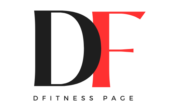The Pescatarian Diet

What's the pescatarian diet?
A pescatarian diet falls within the category of vegetarianism and includes fish and seafood but not meat or fowl. Fish and seafood are frequently consumed by pescatarians, along with a range of fruits, vegetables, grains, and legumes. Dairy and eggs are also common foods for some pescatarians. The diet is frequently chosen for reasons related to health, morality, or the environment.
Is the pescatarian diet good for losing weight?
A healthy and productive strategy to reduce weight is by following a pescatarian diet. Lean protein sources like fish and seafood can make you feel full and satisfied and help you avoid overeating. A fruit and vegetable-rich diet also offers fiber and other nutrients that can aid in weight loss. However, it is necessary to keep in mind that calorie balance ultimately determines weight reduction, thus when following a pescatarian diet, it is imperative to pay attention to portion sizes and be cautious of calorie-dense items, such as cheese and added oils.
Pros:
- Nutritional balance: Fish and seafood are good sources of lean protein, omega-3 fatty acids, and a variety of vitamins and minerals, such as vitamin D and selenium. A diet rich in fruits, vegetables, and whole grains can provide important nutrients such as fiber, vitamin C and antioxidants.
- Weight management: As long as the diet is balanced and calorie-controlled, the high protein and low calorie foods included in a pescatarian diet can help with weight loss and maintenance.
- Heart health: Fish and seafood are rich in omega-3 fatty acids, which have been linked to a reduced risk of heart disease.
- Environmental benefits: Eating less meat, particularly red meat and processed meat, can have a lower environmental impact as raising livestock for meat production can lead to deforestation and greenhouse gas emissions.
- Ethical: Some people choose a pescatarian diet for ethical reasons, as it avoids the consumption of land animals and their byproducts.
Cons:
- Limited food options: Some people may find it difficult to maintain a varied and well-balanced diet without meat and poultry.
- Higher cost: Fish and seafood can be more expensive than other protein sources like chicken or ground beef, and this may make it difficult to follow a pescatarian diet on a budget.
- Risk of mercury and other contaminants: Some types of fish and seafood can contain high levels of mercury and other contaminants, such as polychlorinated biphenyls (PCBs) and dioxins, which can be harmful if consumed in large amounts.
- Risk of nutrient deficiencies: A pescatarian diet may not provide enough of certain nutrients, such as iron and vitamin B12, which are typically found in red meat and poultry.
- Risk of foodborne illness: As with any diet that includes raw or undercooked seafood, there is a risk of foodborne illness from bacteria, viruses, and parasites.
- It may not be suitable for people who are allergic to fish and seafood.
QUESTIONS?
Feel free to ask us about anything! We will answer your questions or concerns as best as we can.
Fitness Products We Recommend

Weight Loss Products
All of the products you need to lose weight are found here for you.

Products to Help Grow Muscle
Wanna grow muscles? We found some products you could use.
